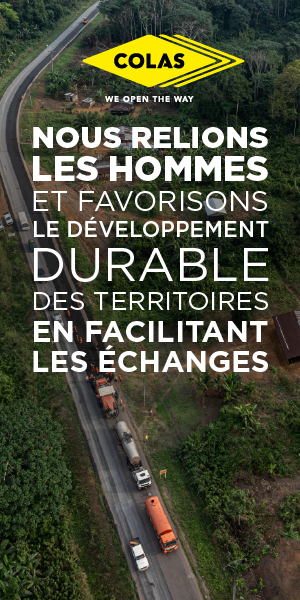Politique Internationale — If you had to sum up the current major economic risks, what would you spontaneously highlight?
Gilles Moëc — The short-term risks are closely linked to the geopolitical situation, starting with the Russian-Ukrainian conflict. Tensions between China and the United States are also a major concern, and the European Union (EU) is torn between the two forces. While the EU’s alignment with US positions is a long- standing reality, it is subject to jolts, and economic interests are not entirely convergent: Sino-European trade relations remain more balanced – or less unbalanced – than those between the United States and China, despite fierce competition over certain strategic products. This Sino-American confrontation is contributing in no small measure to the revival of protectionist ideas, with knock- on effects in Europe. Not that the main principles of free trade are being challenged, but the EU no longer wants to be naive. The proposed new countervailing tax on Chinese vehicles is part of this. That’s understandable, but we have to be careful that this ‘tougher’ approach doesn’t drift into a deeper questioning of free trade. In the United States, during the campaign, Donald Trump was clear: a 10% increase in customs duties on all imported products is a scenario that could be implemented, with 60% ‘special treatment’ for Chinese products. It is no longer a question of enforcing the rules of international trade, but more generally of hindering China’s development.
Generally speaking, geopolitical tensions are accompanied by a number of related threats, particularly on the energy market, which we remember being so badly shaken two years ago. How can we find an energy mix that satisfies both the need for decarbonisation and a supply at a reasonable price? France is well placed in this respect, but most countries cannot say the same.
P. I. — What about the long-term risks?
G. M. — The rise of Big Data and artificial intelligence (AI) are phenomena that arouse both enthusiasm and concern. Among the feared consequences are the widening of social inequalities, the impact on employment and the invasion of privacy. These threats undoubtedly need to be examined and managed. Nonetheless, the discourse on AI is often overly negative. This technological innovation is a formidable accelerator of productivity, where for more than a decade, weakness in productivity gains has been a major factor holding Europe back, while the gap with the United States continues to widen.
The other major long-term risk, which is unambiguous, is global warming. It must be repeated that the final cost of inaction will be massive, even if the sacrifices to be made to achieve ‘net zero’ may seem onerous: successive studies show a deterioration in the situation, with for the moment an inability to maintain the trajectory of temperature rises within the limits of the Paris agreements. This does not mean that nothing is being done. The ecological transition is now being approached in a more pragmatic way; the idealism that prevailed until now has faded. Questions of acceptability have been given a voice, in favour of a fairer transition that does not penalise certain sections of the population.
P. I. — Once the scale of the risks has been assessed, which entities are destined to be in the front line to prevent them from escalating? Governments, international institutions, companies...
G. M. — Pretty much everyone, to put it a little crudely. In any case, nobody has the luxury of being able to sit back and do nothing. When it comes to providing impetus, NGOs are undoubtedly the best-placed to mobilise.
But while impetus is one thing, implementation is another. Both, represented respectively by governments and businesses, are essential if we are to reduce the risks. For example, it is politicians who decide on an energy strategy, which is central to achieving ‘net zero’, and who therefore influence the associated costs. Businesses, for their part, are – almost – everywhere in the driving seat, holding the keys to technological innovation in favour of decarbonisation. It is companies that, for the most part, put things into practice. Make no mistake: risk reduction is based above all on physical factors. We can see this clearly in the energy sector, where new tools and systems are being put in place.
In this respect, governments sometimes come into conflict with companies. Governments consider that the financial burden of the energy transition is too heavy to bear, and decide to pass the burden on to businesses, relying for example on their investment choices to hasten decarbonisation. But to determine their investment policy, companies need visibility on the major choices – the energy mix, the price of carbon, taxation, etc. – that only governments can provide.
P. I. — What about individuals? At their own small level, are they capable of getting things moving? To act as a force of resistance in the face of risk?
G. M. — Individuals are citizens who vote. So they can influence the course of events and the major energy and tax decisions I mentioned. For me, that’s the main channel. Let’s not exaggerate the impact of individual behaviour. In the long term, making people feel guilty can lead to frustrated reactions, making it politically impossible to implement collective solutions. It is by no means clear that the sum total of individual consumer initiatives will be enough to trigger the transition in time. Everyone can, at their own level, decide to reduce their electricity consumption, but they don’t always have a choice about the source of that electricity, whether carbon-based or not.
P. I. — How can we get rid of guilt?
G. M. — It seems to me that we’re talking more about preferences. We can see this in the attitude of financial organisations towards their customers, with their concern to get to know them better, to approach them better, to better identify their needs and appetites, even if this means redesigning their product and service offering. For financial companies, this means being able to orient their customers’ savings after explicitly discussing their preferences, for example in terms of sustainable investment. In the energy sector, companies are increasingly putting themselves in a position to listen to their customers.
P. I. — In the face of economic risks, is a collective dynamic, in the sense of cooperation that can be strengthened, to be found in institutional alliances, inter-state actions and international groupings?
G. M. — Here again, everyone is being asked to mobilise. But to what effect? For several years now, the weight of international action has been weakening on the economic front. You have to go back to 2008 to find any evidence of an effective commitment from a global perspective: 2008 saw the financial crisis that we are all familiar with, a crisis of such intensity which governments nevertheless managed to overcome. At the time, they had a nerve centre to coordinate their operations, in this case the G20. Above all, they worked with confidence in each other. This dual characteristic – an anchor point and an acute awareness of the need to cooperate in the face of a systemic crisis – made a powerful contribution to containing the financial crisis relatively quickly.
Today, on the contrary, it’s a bit like every man for himself. The proof is in the energy sector, where special interests largely prevail. OPEC, for example, has no other vocation than to defend the use of fossil fuels and the incomes of its members. This is true of almost all organisations, with the notable exception of the COP, which the United Nations has provided with appropriate governance, with the unanimously respected expertise of the IPCC. In the end, thanks to the COP, its precise indicators and the availability of competent teams to move forward on trajectories, the ecological debate has gained in consistency and, if I may say so, in rationality. In Paris in 2015, COP21 established itself as a benchmark for collective commitment, even if the climate challenges remain enormous and the roadmap, far from being honoured.
P. I. — Sharing value is a widely discussed theme these days, seen as a way of mitigating the seeds of social crisis. As far as companies are concerned, we are all familiar with the recurrent grievances levelled at large groups: privileged shareholders, managers who are well – too well? – rewarded. Are these criticisms justified, simplistic or caricatural? What do they say about the threats facing our society?
G. M. — These grievances are not unfounded, but they are difficult to generalise because situations differ so much from one country to another. In some countries, company profits have risen enormously while wages have stagnated. In others, such as France, the wage/profit split has remained broadly stable. This is why, in our businesses, we need to be agile in order to work in changing environments. But these concerns are integrated into our voting strategy at the general meetings of the companies in which we invest. We regularly vote against management remuneration proposals that we feel are excessive.
Another factor of complexity lies in the distance between the statistical apparatus and the perceived reality on the ground. At AXA, we are used to processing vast amounts of data, as in the case of the Future Risks Report, which we publish every year and which puts a large number of figures into perspective. In several countries, however, we have observed a significant gap between the objective situation of social inequalities, as represented by statistical sources, and the views of public opinion in general, which are much more negative. This gap between data and ‘perception’ is a real challenge for decision-makers.
P. I. — Insurance groups are seen as having the means to offer a social barometer. Is this really the case?
G. M. — We play the role of watchdog. We insure our customers all the better for having thought through the risks to which they are exposed in advance, so that if necessary we can respond in the best possible way.
The fact that we are a social barometer is also due to our proximity to the economic machinery. One example among many: when certain spare parts are lacking for cars, because of a shortage of materials linked to geopolitical tensions, we are immediately concerned because we have to find solutions to repair or replace vehicles. When households started to feel the pressure of inflation two years ago, we shared the same perception, since we were seeing the cost of spare parts rising. The fact that an insurance group is constantly immersed in real life – and there are many examples of this – increases our social sensitivity.
Finally, the use of AI is an additional tool for observing society more closely. Once again, we are processing a huge amount of data, which provides a great deal of information about how society is evolving. At the same time, there is a strong need to protect access to all this information, as cyber-security risks have become commonplace.
P. I. — In the current climate, would you say that the risks are so great that they are weighing on household sentiment?
G. M. — In fact, we find that there is no direct relationship between the degree of people’s anger and the state of their economic difficulties. The angriest people are not necessarily those most exposed to the vicissitudes of everyday life. The example of the United States is symptomatic: before the presidential election, surveys clearly showed that American citizens had no more confidence in the Biden administration than they did in Donald Trump’s. They were just as upset, even though the objective economic situation in the United States had improved, with several encouraging indicators, including strong growth in real wages.
P. I. — In this rather gloomy climate, can you see any grounds for optimism?
G. M. — Despite the often twilight atmosphere in which we live, progress is not standing still. It is even accelerating in the field of healthcare. It is currently being driven by AI, whose achievements, it bears repeating, are considerable. Thanks to technology, certain professions have become much more interesting than they were before. Others, which used to be marked by drudgery, are now carried out in more comfortable conditions. Still others are becoming particularly attractive to young people.
In many respects, the horizon is clearing. Some people are inclined to think that their children, and even more so their grandchildren, will face greater economic difficulties, particularly in terms of access to employment. But thanks to continuing technological progress and the resulting disruptions, the picture is far from being so bleak. The future holds some interesting surprises.




















